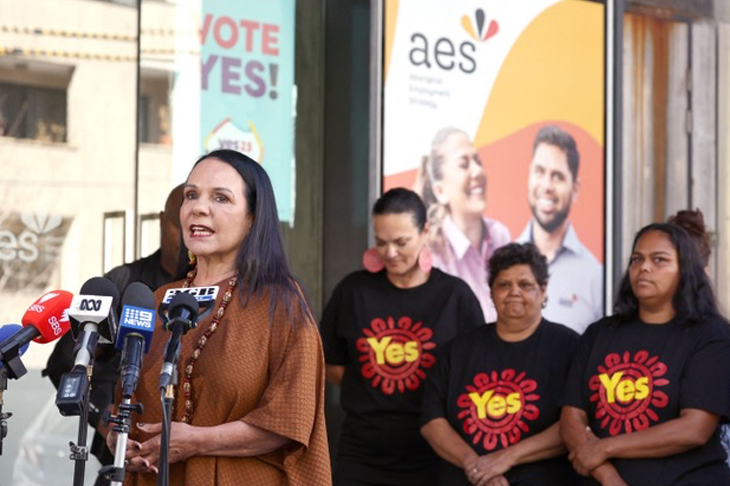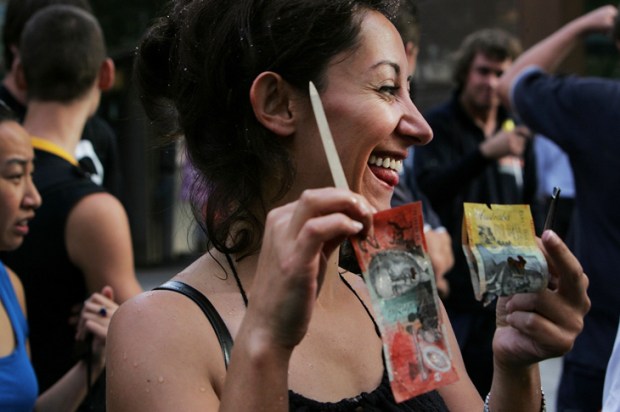The key advocates of the constitutionally enshrined Voice called for a week of silence after the vote to allow them to mourn the massive thumping that occurred at the ballot box. After all the votes are counted, there definitely won’t be a 4 in front of the Yes percentage.
The reality is that the week was required for those Yes advocates to dream up reasons why the referendum campaign failed so dismally. Mind you, a number of Yes supporters jumped out of the blocks and gave us the wisdom of their thinking almost immediately. We were not educated enough; we were misinformed; we are too mean-spirited; we are racist.
The main aim will be to deflect any blame from the decision to hold the referendum in the first place and the campaign itself. There will also be a series of excuses made by those groups that chose to spend other people’s money on the losing side.
There is already egg on the faces of some corporate directors who persuaded their listed companies to donate money to the Yes23 campaign without seeking the consent of the shareholders. This was also notwithstanding the fact that a number of these companies have codes of conduct that specifically prohibit the board from making political donations. A typical excuse, given by the chair of the CBA for example, is that this was policy not politics – a difference without a distinction, if there ever was.
On one estimate, thirteen of the top 20 listed companies in Australia donated money to the Yes23 campaign and most of them provided in-kind and moral support as well. The CEO of one of the big banks emailed all employees to the effect that he wasn’t telling them how to vote, but. There is a rumour that not all the companies that agreed to donate actually stumped up with the dough – a bit like a telethon. As the polls turned sour, there was less incentive to make good on the promise.
We shouldn’t overlook the fact that a number of large companies steadfastly refused to donate money to either side of the referendum and stayed neutral. They included: Aristocrat Leisure, Goodman Group, CSL, Macquarie Bank, Fortescue Metals and Santos. Clearly, some directors were able to resist being taken by the strong woke tide.
Perhaps the biggest single donation to Yes23 came from the Paul Ramsay Foundation, for the sum of $5 million. What was the Ramsay Centre for Western Civilisation doing, donating such a large sum of money? What has to be realised is that the Paul Ramsay Foundation and the Ramsay Centre for Western Civilisation are separate entities and the foundation has all the money.
Now according to its website, the purpose of the Paul Ramsay Foundation is ‘to help end cycles of disadvantage in Australia by enabling equitable opportunity for people and communities to thrive’. The trustees, most of whom have been appointed since Ramsay’s death, thought an early donation of $5 million to Yes23 was consistent with this purpose.
Obviously, there was a requirement for the Foundation to explain its donation after the referendum had been so convincingly defeated. Reading through this relatively long statement – it’s not an explanation – it’s clear that the trustees are not embarrassed and would rather re-prosecute the Yes case.
‘The generous invitation from the Uluru Statement from the Heart was one that millions around the nation accepted with open arms on Saturday. That it was not enough to pass the Referendum was, and will continue to be, felt deeply by many.’
‘The Paul Ramsay Foundation, one of the original philanthropic funders of the Yes campaign… today strengthened its commitment to listen to the voices of First Nations people and support communities to have a greater say in the issues and decisions that affect them.’
A number of local councils also gave both monetary and non-monetary support to the Yes campaign, chief among them the City of Sydney to the tune of $500,000 as well as providing free-of-charge offices to Yes campaigners. Banners and corflutes emblazoned with Yes messaging adorned the streets in a number of mainly inner-city suburbs. The City of Melbourne was all on board as was the City of Merri-bek in inner Melbourne.
Needless to say, no specific consent was sought from ratepayers although most of the elected councillors of these local governments would argue that ratepayers would have been naive to expect otherwise.
When it came to the major sporting codes, the governing bodies were unanimous in supporting the Yes campaign although ultimately there was little visible endorsement of their position at any games. Certainly when it came to the AFL, there was speculation that strong political pressure had been applied to get the code’s endorsement for the Yes side.
Of course, not all players, let alone the supporters, were on board with the Yes campaign. Reflecting this suspicion, it was not surprising that the finals came and went with nary a mention of the referendum: booing from the crowd wouldn’t have gone down well with the bigwigs. Only the usual (barely tolerated) Welcome to Country ceremonies proceeded. In theory, the trade unions supported the Yes campaign although it’s not clear that any money changed hands. It’s also not clear that trade unionists really lifted a finger in terms of campaigning or handing out cards at polling booths.
After the result was clear, the ACTU put out a waffle response including reaffirming ‘our strong, unwavering support for Australia’s Aboriginal and Torres Strait Islander people, and we stand in solidarity with them in their ongoing fight for justice and against discrimination and profound disadvantage’. (It sounds like the script from a Superman episode.) The result, according to our trade union warriors, could be blamed entirely on Peter Dutton.
One of the truly exciting aspects of the referendum result was the proof that money and support from the elites is not a guarantee for success. Indeed, if anything, elite endorsement, be it from executives of large companies, sporting champions, celebrities from the entertainment world or universities, appears to be a net negative, something that the Yes campaigners realised too late in the piece.
When Nathan Cleary, champion rugby league player from Penrith Panthers, told us he was voting Yes, I had three thoughts. First, who is Nathan Cleary? Secondly, what would Nathan Cleary know? And, thirdly, I don’t barrack for the Panthers. This looked like a Marketing 101 blunder.
Got something to add? Join the discussion and comment below.
Get 10 issues for just $10
Subscribe to The Spectator Australia today for the next 10 magazine issues, plus full online access, for just $10.
You might disagree with half of it, but you’ll enjoy reading all of it. Try your first month for free, then just $2 a week for the remainder of your first year.












Comments
Don't miss out
Join the conversation with other Spectator Australia readers. Subscribe to leave a comment.
SUBSCRIBEAlready a subscriber? Log in